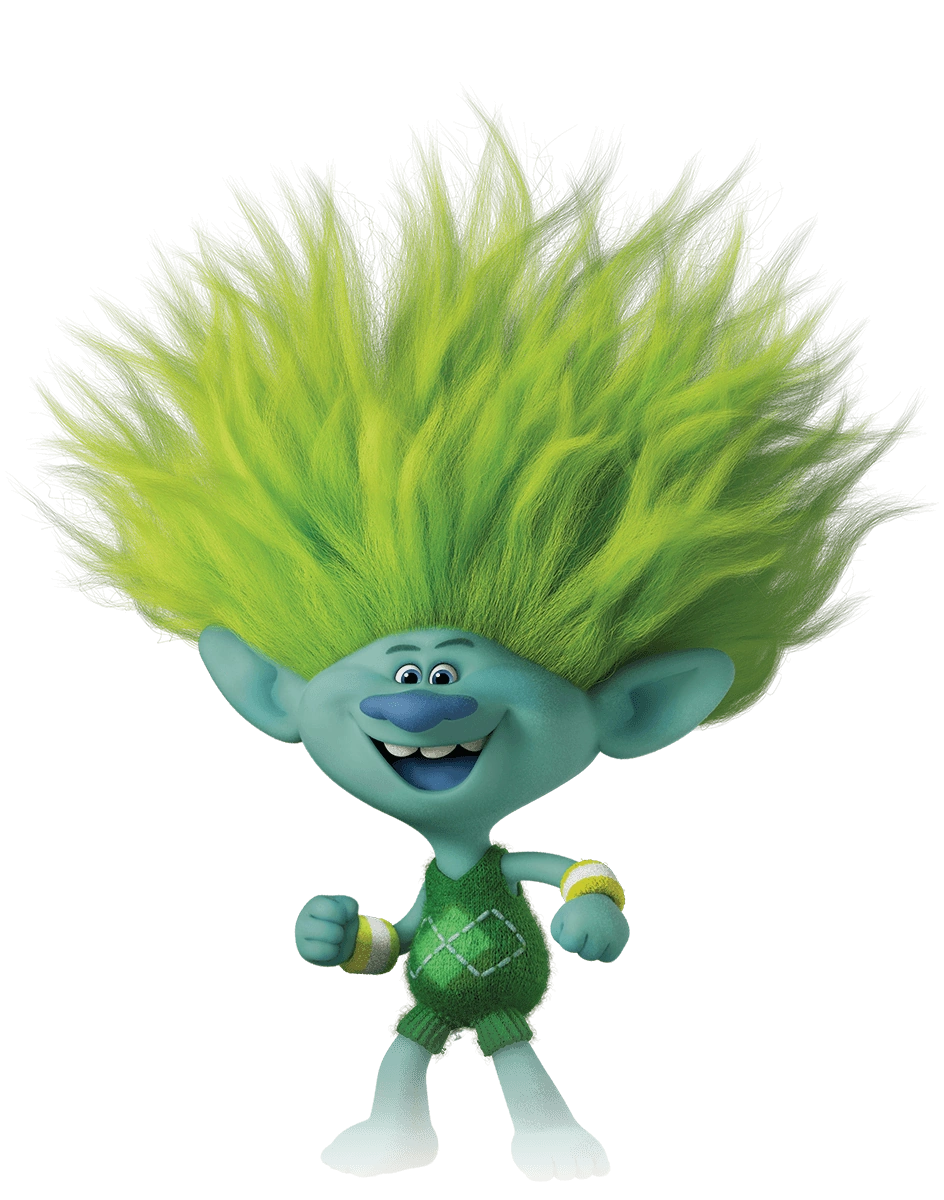The Diverse 'Troll World Tour Cast': Exploring Meanings And Cultural Footprints
Have you ever stopped to think about the word "troll" and just how many different hats it wears? It's really quite something, actually. From the playful figures of our childhood memories to the more, shall we say, challenging presences we sometimes encounter online, this single word seems to have, in a way, gone on its own kind of journey, picking up new meanings along the way. It's not just one thing, you know, and that's pretty interesting.
This idea of a "troll world tour cast" is, in some respects, a fun way to think about how this word travels across different parts of our lives. It pops up in so many places, sometimes meaning something quite ancient, other times something very modern. It's almost like the word itself is an old traveler, collecting stories and roles wherever it goes, which, you know, makes it a rather rich subject to explore.
So, we're going to take a look at the various roles this word plays, almost like a cast of characters in a grand performance. We'll explore its journey from mythical beings to internet mischief-makers, and even to some truly impressive feats of engineering. It's a bit of a deep dive, really, into what "troll" can mean, and how these meanings, you know, shape our understanding of the world around us.
Table of Contents
- The Iconic Troll Doll: A Pop Culture Journey
- Troll in the Digital Playground: Internet Meanings
- Troll Beyond the Screen: Mythology and Engineering
- The Linguistic "World Tour": How "Troll" Evolves
- Frequently Asked Questions
The Iconic Troll Doll: A Pop Culture Journey
When we talk about "troll" and its cultural impact, it's pretty hard not to think about those endearing, wild-haired figures that many of us, especially those of us who grew up in the 80s and 90s, remember so fondly. These little creatures, known as Troll Dolls, were, you know, quite the phenomenon. They had those big, expressive eyes and, of course, their signature burst of colorful hair that stood straight up. They brought a lot of joy to children back then, actually, and their presence was felt in toy boxes everywhere.
It's fascinating, really, how these simple toys managed to capture so many hearts. They were, in a way, a very tangible part of childhood for a whole generation. Their appeal was pretty universal, it seems, crossing borders and becoming a beloved plaything for kids around the globe. This kind of widespread acceptance, you know, truly shows how much of an impact they had, making them a significant part of this conceptual "troll world tour cast" in terms of pop culture.
The story of these dolls is quite a tale, actually, showing how a simple idea can, you know, grow into something much bigger. They are, in a sense, the friendly face of "troll" for many people, representing charm and a touch of whimsy. Their journey from a humble toy to a cultural icon is, you know, a pretty good example of how some things just resonate with folks, leaving a lasting impression on our collective memories.
Troll in the Digital Playground: Internet Meanings
Moving from the tangible world of toys, we find that the word "troll" takes on a rather different, and sometimes more challenging, meaning when it steps into the digital space. On the internet, "troll" is a term that, you know, gets tossed around quite a bit. It refers to someone who, in a way, aims to disrupt online communities, discussion groups, or social networks. Their purpose, very often, isn't to have a serious conversation, but rather, you know, to provoke a reaction, to stir things up, or to simply annoy others. It's a bit like they're trying to get a rise out of people, which, as you can imagine, can be pretty frustrating for everyone else involved.
This digital version of "troll" has, you know, many faces, and it's important to understand the different ways this behavior can show up. Sometimes it's subtle, other times it's quite overt, but the underlying goal is usually to create some kind of disturbance. It’s almost as if these individuals are playing a part, a role designed to get attention, even if it's negative attention. This online "troll" is, you know, a distinct member of our "troll world tour cast," representing a specific kind of digital interaction.
The actions of an internet troll can, you know, manifest in several ways. They might, for instance, try to derail a conversation, moving it far off its original topic, which is sometimes called "歪楼" in Chinese, a kind of "bending the building" of the discussion. Or, they might engage in what's known as "blacking out" someone, essentially criticizing or mocking them. Sometimes, it's just about general mischief, trying to cause a ruckus. So, you know, it's a pretty broad term for disruptive online behavior.
The "Actor" Troll: Gaming Shenanigans
In the world of online gaming, the term "troll" takes on a slightly different, yet still disruptive, flavor. Here, it can sometimes mean someone who is, you know, acting like an "actor," but not in a good way for the team. For example, you might hear someone say, "Genji is trolling," and what they mean is that Genji, a character in a game, is perhaps intentionally playing poorly, or doing things that undermine the team's efforts, almost like they're putting on a show, but a very unhelpful one. It’s a bit like they're playing a role that causes problems, which, you know, can be incredibly frustrating for other players trying to win.
This kind of "troll" behavior in games isn't always about outright abuse, but more about, you know, creating a disadvantage for their own team, or just generally messing around in a way that isn't productive. It could be something like pulling a worker away from their tasks in a strategy game, a move that's, in a way, considered "坑爹" or "pitfall" behavior, essentially sabotaging your own side. So, you know, it's about intentionally making things difficult, often for laughs, but at the expense of others' enjoyment or success in the game.
It’s important to distinguish this from someone who is just having a bad game, you know. A "troll" in this gaming sense is often doing it on purpose, which is what makes it so annoying. They're, in a sense, casting themselves in the role of the antagonist, not for the story, but for the immediate reaction they get from their teammates. This type of "actor" troll is, you know, a very specific character in our conceptual "troll world tour cast," unique to the gaming scene.
The "Troublemaker": Wrecking Online Discussions
Beyond gaming, the internet "troll" often specializes in creating chaos in general online discussions. Their goal, very often, is not to engage in a meaningful way, but rather to, you know, provoke arguments or upset people. They might post inflammatory comments, or just say things that are designed to get a strong emotional response. It's almost like they thrive on the commotion they create, which, you know, can really spoil the atmosphere for everyone else trying to have a civil conversation.
This kind of trolling can be seen in various online spaces, from social media platforms to forum discussion boards. They might, for instance, mock a celebrity's post, causing a big stir among their followers, or just generally try to, you know, "black" someone's reputation. It's a form of online harassment, in a way, where the main aim is to annoy, anger, or simply disrupt the flow of conversation. They are, in a sense, the ultimate online troublemakers, constantly seeking to, you know, create a scene.
Their methods can be quite varied, but the common thread is always disruption. They are not looking for solutions or common ground; rather, they are, you know, looking for a reaction. This makes them a particularly challenging member of the "troll world tour cast" to deal with, as their motivations are often rooted in provoking others rather than genuine interaction. So, you know, recognizing this intent is often the first step in handling such situations.
Dealing with the Digital Troll: Smart Strategies
So, you know, once you understand what an internet troll is, the next big question is often how to deal with them. It can feel pretty overwhelming, actually, when you encounter someone who seems determined to cause trouble online. But, as someone who has, you know, spent a good deal of time both encountering and, in a way, understanding these digital mischief-makers, there are some pretty effective ways to handle them. It's about being smart and strategic, really, rather than letting them get the best of you.
One very important method, and arguably the first one to consider, is to focus your efforts and, you know, argue logically. Trolls often have weak points in their arguments because their main goal is just to provoke, not to be rational. If you can, you know, point out the flaws in what they're saying with clear, reasoned points, it can sometimes disarm them. They thrive on emotional responses, so a calm, factual approach can, in a way, take away their power. It's about showing them that their provocations aren't working, which, you know, can be quite effective.
Another approach, and this is pretty crucial, is to avoid getting dragged into their game. Trolls, you know, often want to waste your time and energy. If you engage endlessly, you're giving them exactly what they want. Sometimes, the best response is no response at all. It's a bit like starving them of the attention they crave. This strategy is, in some respects, about protecting your own peace of mind and not letting their negativity, you know, consume your valuable time online. Learn more about on our site, for further reading on this topic.
Finally, and this is a pretty powerful tool, is the use of moderation features available on most platforms. If someone is genuinely being disruptive or abusive, you know, reporting them or blocking them is often the most direct way to deal with the situation. Many online communities have rules against trolling, and reporting ensures that the platform administrators are aware of the problem. This helps to maintain a healthy online environment for everyone, which, you know, is really what we all want. It’s about taking action when necessary, and, you know, not tolerating behavior that harms the community.
Troll Beyond the Screen: Mythology and Engineering
The word "troll" doesn't just live in the realms of internet slang or childhood toys; it has, you know, much older roots and some surprisingly modern applications that take it far beyond what you might expect. This shows just how diverse our "troll world tour cast" truly is, extending into ancient tales and even cutting-edge human achievements. It's a bit like the word itself is an adventurer, always finding new places to make its mark, which, you know, is pretty fascinating when you think about it.
In many cultures, particularly in Scandinavia, the word "troll" brings to mind images of mythical creatures, often depicted as large, sometimes fearsome, beings living in mountains or forests. These are the classic "giants" of folklore, the kind of figures that, you know, inhabit ancient stories and legends. And then, quite remarkably, the word also appears in the context of immense human ingenuity, like with the "Troll A" platform, an engineering marvel that stands as a testament to human skill. So, you know, the range of meanings is truly vast.
It's interesting how a single word can encompass such different ideas, from the fantastical to the intensely practical. This duality is, in a way, what makes "troll" such a compelling word to explore. It’s a word that, you know, carries both the weight of ancient myths and the precision of modern science, making it a very unique member of our conceptual "troll world tour cast," truly showing its global reach and diverse interpretations.
The Ancient Giants: Mythological Trolls
In the deep mountains of Norway, and indeed throughout much of Scandinavian folklore, the concept of a "troll" often refers to a colossal, powerful creature, typically a giant. These are the beings that, you know, have been trapped for perhaps a thousand years, sleeping deep within the earth, only to awaken and cause immense destruction. Their awakening is, you know, often depicted as a cataclysmic event, turning everything in their path into ruins as they move towards populated areas, like a country's capital. It’s a pretty dramatic image, actually, of a force of nature unleashed.
The challenge in these stories, and in the recent Norwegian film titled "Troll" from 2022, is how one might possibly stop such a creature. These aren't just any monsters; they are, in a way, ancient forces that were thought to exist only in legends. The idea of something so powerful, something that "should only exist in stories," suddenly becoming real, is, you know, a very compelling narrative. This mythological "troll" is, you know, a very imposing and ancient member of our "troll world tour cast," representing primal power and mystery.
These mythical figures are, in a sense, a reflection of nature's raw power and the unknown. They embody the wild, untamed aspects of the world, often associated with mountains, caves, and forests. Their presence in folklore has, you know, shaped cultural narratives for centuries, providing cautionary tales or explanations for natural phenomena. So, you know, they are much more than just simple monsters; they are symbols of ancient power and the challenges humanity faces when confronted by forces beyond its control.
Engineering Wonders: The Troll A Platform
Shifting gears quite dramatically, the word "troll" also lends its name to an incredible feat of modern engineering: the Troll A platform. This structure is, you know, truly something to behold. It stands tall, supported by four massive concrete pillars, and what's really amazing is that a significant portion of its height, about 303 meters, is actually located deep beneath the surface of the sea. It’s a testament to human

Trolls (2016) | Fandango

Clay | Trolls Trollpedia | Fandom

Download Tiny Pocket Troll Png Aff92 | Wallpapers.com